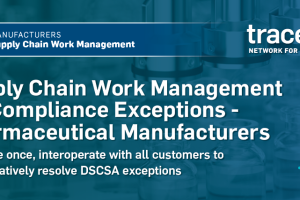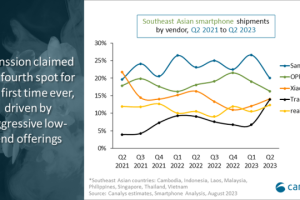Dubbed ’The Google of Healthcare’ by The Economic Times, Credihealth was launched in Jan 2014 in New Delhi and has expanded to ten cities across India. This Frost & Sullivan 2014 Customer Value Leadership Award Winner for Online Healthcare Information Service Provider is India’s first online search engine for serious healthcare. Founder Ravi Virmani – ex COO of Max Healthcare, has a long experience in the field of healthcare operations, and here he shares his insights on the telehealth and mHealthcare market in India and where we stand in the global scene.
Do you think online or mHealthcare has come of age in India? Where are we placed on a world scenario?
I think we have not yet to come of age, but certainly on our way. Today, in India there are a number of players trying to do a variety of things. All the players are at different stages of the evolution – some have scale, but cannot monetise, some are facing roadblocks due to regulations (lack of). Some others do not have stakeholders who completely understand the industry.
We have yet to catch up with the many advanced things they are doing in the developed world which they started many years ago. But our healthcare eco system is very unique largely because of its complexity. The second reason is we are on our own, we have no government or institutional support. There are no guidelines to guide us or inhibit us, and no proper regulations that can interpret the contemporary scene for us. For instance, companies are interpreting a 1945 rule on the permissions to sell medicines online, while there was no internet in 1945, so it cannot apply at all. Besides, we have a Medical Council of India with no teeth, it’s an ineffective system. Research is never published,
80% of our population has no medical insurance, unlike in the US where 95% are insured, so insurance companies dictate which doctor you see. In India people go shopping from one doctor to another.
The micro reasons are there are some very bright engineers who have come up with some great healthcare solutions, got funding and scaled up excellently. But that’s only a part of the story , they have only a part understanding of how the market works, because they have not worked in healthcare. They are now wondering which parts should we change, how do I monetize, how do I match the two. Then some parts are very new, like predictive diagnostic…Indian public is not used to sending a DNA sample by courier.
These are the reasons why we are still not there.
However, we should be able to crunch the journey to catch up with developed markets in 6-18 months. I say this because in India, we don’t follow the west blindly, we learn and apply, that will hold good in healthcare too. We will not follow anyone, we will create our own path.
You have been with Max healthcare, what differences do you find in the operations of online health between new companies and established hospitals and healthcare providers
There are 2-3 kinds of hospitals in India. At the top of the line are corporate hospitals , listed and they are run by companies. Then there are family owned, and the third category is of doctor owned. The corporate hospitals have understood that mHealthcare is an important partner, and have invested in online platforms. Some have implemented, and some are in pretty advanced stage.
But not many have been very successful in their endeavours, they work with outsourced agencies to help with online work. It’s lack of core competence. These agencies are very well focussed in the e-retail world, but not healthcare world. They do a great job in lifestyle products but to market neurosurgery, cancer and cardiology, they are very few agencies that have killer expertise.
Today India has a large number of Google-patients – (a word I have coined). Hospitals now have to grab them with a Google pitch- which is a new phenomenon. The online channel gets about 10-15% of their patients.
However, the family owned hospitals are reluctant to adopt newer and modern methods of marketing because that requires investment that they do not understand. They have been investing in doctors, real estate and equipment but never focused on the online market. This is delaying their adoption of mHealthcare.
The best adopters are the individual super specialised clinics segment usually run by returning Indian doctors with pedigree, because they need more business and their decision making is faster. They realise the importance of this medium, and also because they have small marketing budgets, they rely a lot on internet.
I should say that there is huge adoption from customer side, especially for modern procedures like Lasik procedures, IVF, sexual health related consulting, and even cardiac procedures.
Do you think Indian healthcare sector is ready for this? Given that 15 crore Indians are still in rural areas and digitally illiterate?
Rural areas will take time. We are doing pilot projects which will be one medium by which we can make the rural populace access. The government is not investing in this sector, and private hospitals don’t see RoI, so it is taking time.
We are working on these models because good specialists are not willing to live in rural areas. We are already experimenting with this. The moment there is a success, it will get replicated immediately. Within 6-18 months it will happen. However, we will need to be careful that the unethical practices that go in offline healthcare delivery, should not be carried over to online as well! The lack of regulations, and absence of rules is what we are trying to fight. But I will say, the signs are positive and with the internet penetration increasing, habits are changing.
What do you foresee with the advent and adoption of IoT and Remote management technologies?
It has a huge potential. RPM needs best professionals, it covers the distance issue, and helps provide good quality advice to people. In places where hospitals have capital to buy high end equipment and machines but no proper radiologist to run it, they will be forced to innovate and get into remote management. So if there are more efficient mHealthcare providers which can bring patients to good doctors, this tend will see double digit growth month on month.
Is the government supporting mHealth initiatives with better connectivity and clearer compliance policies? Are there still some loopholes needed to be filled?
This whole thing about government funding stat ups, is a non-starter . Startups don’t have time and people to wade through the bureaucracy to go through the moves the government wants. Only mHealth will help under these circumstances.. That is slower, but do I see that traction? Yes I do. Even if 15% or 20% begins to happen, it will work. That part is happening thanks to internet. But anything else is too slow. The required action, implementation, trial-every effort is coming only from private sector or entrepreneurs.
There is complete lack of political will, plus the govt has other priorities. In other countries, for example in UK, the NHS (National Health Service) has huge advantages over us. In the UK 17 to 21% of taxes paid are channelized into healthcare. NHS has the advantage of being an apex, non political body that can cut across anything and look at public interest at large. In India that doesn’t exist. What we need is a regulator in healthcare. For all aspects – mHealth, brick and mortar or insurance, we are sadly missing that.




























